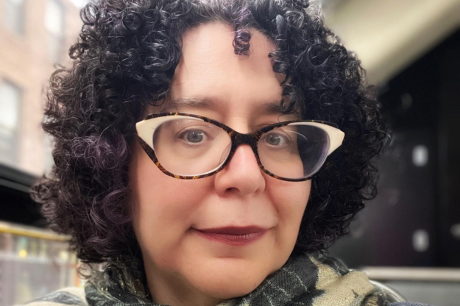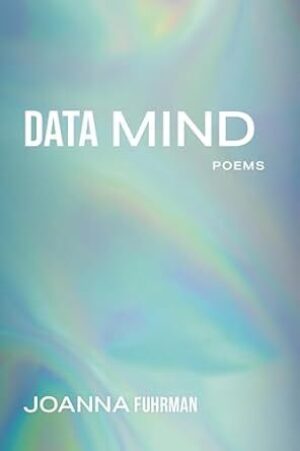In Their Own Words
Joanna Fuhrman on “The Algorithm Ate My Lunch”

The Algorithm Ate My Lunch
I wanted everyone to feel the way my teeth vibrated, but when I posted my glow-in-the-dark selfie only the closet mermaids noticed. I didn’t blame anyone. I knew the oceans were walking heavy-footed on the land. It was one of those afternoons when I was sure that God was the series of tubes connecting my brain to the torso of a deer. Was it possible that the self was larger than the country that birthed it? Could a mouth open large enough to accommodate the girth of a bloated nation’s whale? I hung a sign that read “Hope” on the taxidermied body of an owl and waited for applause. Children gathered around to worship, sticking microchips and slivers of sunlight in its missing, blinking eye.
Reprinted from Data Mind. Copyright © 2025 by Northwestern University. Published 2025 by Curbstone Books / Northwestern University Press. All rights reserved.
On “The Algorithm Ate My Lunch”
The desire for human connection—while difficult to achieve and commodified by social media—has something beautiful and poetic about it, too. The reason we turn to Facebook, or what was once Twitter, is not that different from why we write and publish poetry. We all have an innate desire to share parts of ourselves with others. Perhaps we just want our egos stroked, or maybe interactions with others is how we create a sense of self, how we remind ourselves that we are not alone in the universe.
Because of this, I don’t think the impulse behind this poem—and my new book, Data Mind—is fundamentally different from what has always animated my work. When I was in graduate school and discussing my thesis (which later became my first book, Freud in Brooklyn [Hanging Loose Press 2000]), Heather McHugh, who was one of my advisors, said that she thought all of my poems are at heart about a speaker talking to a void. I am not sure if this is true, but it is true that my first sense of myself as a poet came when I found an Emily Dickinson book on the shelf. I remember her voice reaching me from across time, asking if “I was nobody too.” Since then, I have been interested in what it means to speak intimately with another if you don’t know who the other is. How is writing poetry like throwing a message in a bottle into the ocean? Frank O’Hara, in “Personism,” wondered why one would write a poem to a person instead of just picking up the phone and calling them. Now, we wonder why one would write poetry and not just post your thoughts to Facebook. How does the way we share our thoughts in daily life change the way we write poetry? Is the poem that exists between two screens instead of two people “correspondingly gratified?” These sorts of questions animated the collection.
Because cultural critics and poets usually write about social media and the internet with cynicism and condescension, I wanted to find a way to approach digital life with more openness and a sense of awe. I am old enough to remember the excitement when my generation first went online, and the utopian hope surrounding its introduction. As a poet, I am curious how we can critique the internet without taking part in a moral panic or employing a tone tinged with disdain.
“The Algorithm Ate My Lunch” is the first piece in what I think of as a book-length poem. As the book progresses and the poems shift from exploring the pleasure of social media to issues of sexism, consumerism, and anti-democratic forces online, I hope to be able to maintain the feeling of contradiction: to find the joy in the bleakness, the feeling of loss at the heart of having fun.



